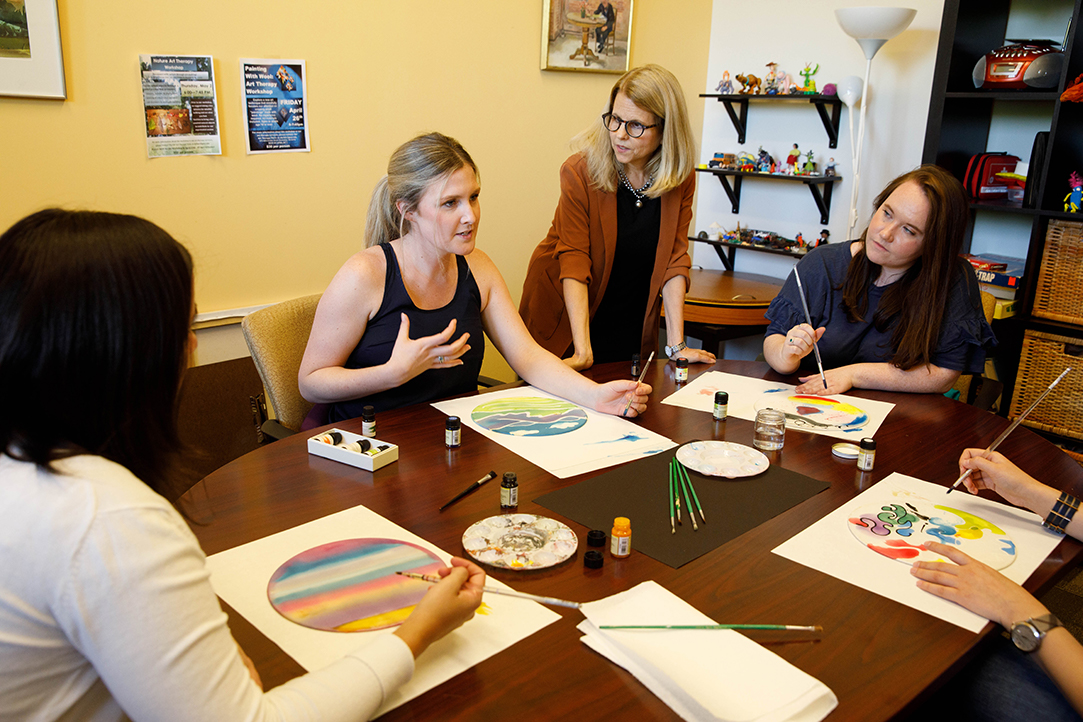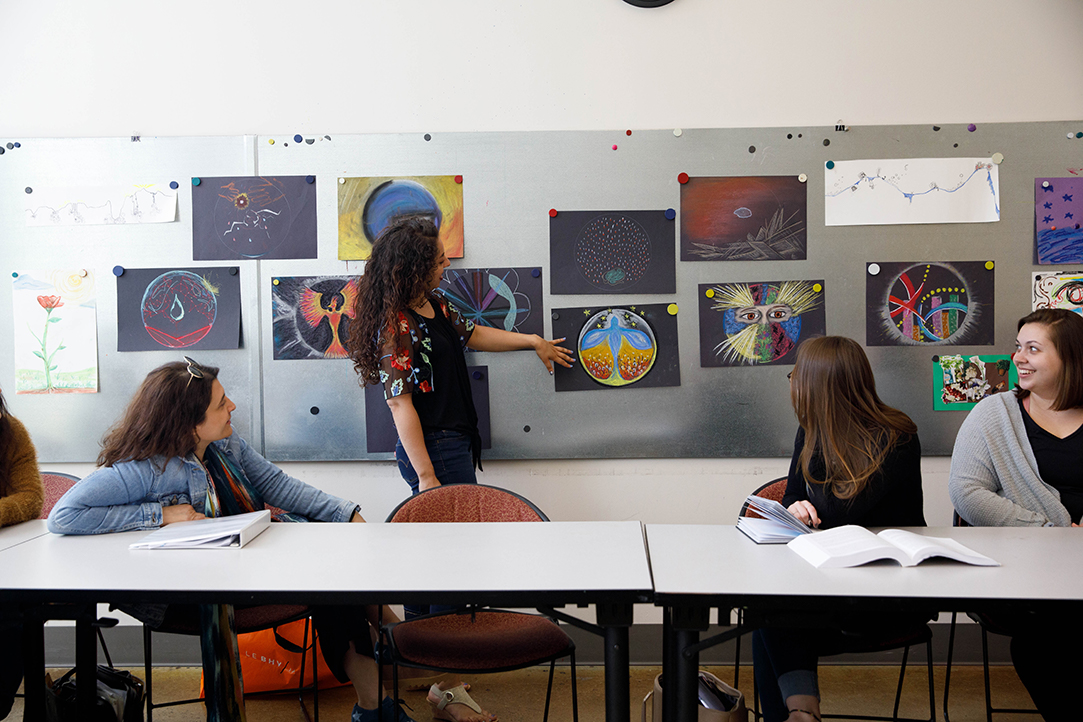Academics
In the accredited GW Art Therapy Program, students train to be highly skilled therapists whose professional practice is grounded in a broad understanding of current clinical art therapy, counseling and trauma theories. Through a master’s degree that can be completed full time, part time or as a combined BA/MA option, students learn to apply effective research and evaluation methodologies, clinical skills and studio expertise. Students can supplement their classroom studies with study abroad trips, program-hosted colloquia and continuing education seminars, which train participants on advanced clinical issues.
Located at GW’s Alexandria Graduate Education Center, students are close to Washington, D.C.’s many museums and medical research libraries. Between our on-site Art Therapy Clinic and external internship options throughout the area, students gain hundreds of hours of practical training alongside licensed clinicians.
Academic Programs
Program Highlights
Comprehensive Trauma Training
Offering training from experts, the curriculum enables students to study trauma theory in the classroom and then apply those lessons to real-life client work.
In-House Clinical Training
In the GW Art Therapy Clinic, students gain experience alongside registered, board-certified faculty while giving back to the local community.
International Opportunities
GW's program is unique in the field for our international focus, offering research and study abroad opportunities in India, Hong Kong, Croatia and more.
Professional Licensure Preparation
Students complete nearly 1,000 hours of clinical training, many of which may be applied toward professional licensure in art therapy after graduation.
“My fondest memory is working with my peers and professors in the Art Therapy Program on an anti-racism and anti-oppression statement, advocating for self-reflection and change in our program and field. Responding to the tragic loss of Black life at the hands of police, it was powerful to witness our commitment to this growth process, even when it became difficult. With creativity, responsibility and accountability, we stood together in support of an art therapy community where we all belong.”
Claire Kalala
Art Therapy' 21
Program Goals
The Art Therapy Program prepares graduates in accordance with the Accreditation Council for Art Therapy Education (ACATE) Standards and Guidelines for the Accreditation of Educational Programs in Art Therapy: “To prepare competent entry-level Art Therapists in the cognitive (knowledge), psychomotor (skills) and affective (behavior) learning domains.” To that end, our program goals are aligned with both university priorities and ACATE requirements.
- Students will acquire broad art therapy knowledge, skills and values based in psychotherapy, neuropsychology, art processes, creativity, metaphor, assessment, human development, psychopathology, trauma and counseling.
- Students will engage in clinical and studio work with insight, self-awareness and a high level of professional, ethical, multicultural and relational expertise with diverse local and international communities.
- Students will utilize classroom interactions, supervisory experiences, art making, gallery exhibitions and service-learning opportunities to cultivate their identities as art therapy leaders, artists, researchers, supervisors, advocates and innovators in the workplace, community and profession.
- Students will develop proficiency in sustaining the rich history of art therapy by engaging in ongoing professional development; advancing the relationships among sociocultural contexts, institutional regulations and governmental laws; and expanding access to art therapy.
- Students will synthesize the latest theories and clinical skills of neuropsychology and art therapy in the treatment of trauma-related disorders.









